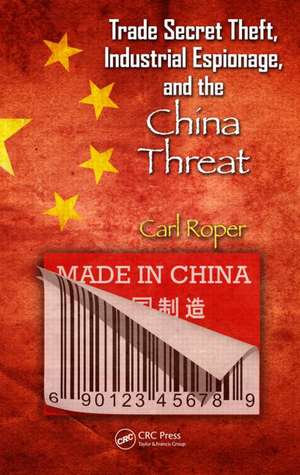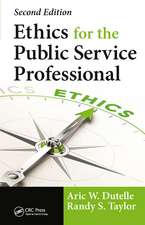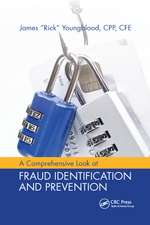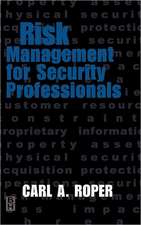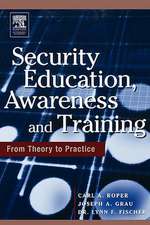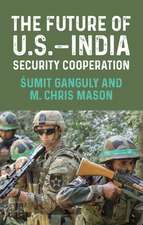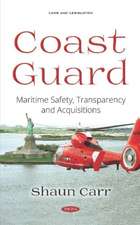Trade Secret Theft, Industrial Espionage, and the China Threat
Autor Carl Roperen Limba Engleză Hardback – 10 dec 2013
Supplying a current look at espionage, the book details the specific types of information China has targeted for its collection efforts in the past. It explains what China does to prepare for its massive collection efforts and describes what has been learned about China's efforts during various Congressional hearings, with expert advice and details from both the FBI and other government agencies.
This book is the product of hundreds of hours of research, with material, both primary and secondary, reviewed, studied, and gleaned from numerous sources, including White House documentation and various government agencies. Within the text, you will learn the rationale and techniques used to obtain information in the past. You will see a bit of history over centuries where espionage has played a role in the economy of various countries and view some cases that have come to light when individuals were caught.
The book supplies an understanding of how the economy of a nation can prosper or suffer, depending on whether that nation is protecting its intellectual property, or whether it is stealing such property for its own use. The text concludes by outlining specific measures that corporations and their employees can practice to protect their information and assets, both at home and abroad.
Preț: 1009.76 lei
Preț vechi: 1231.42 lei
-18% Nou
Puncte Express: 1515
Preț estimativ în valută:
193.24€ • 199.63$ • 160.83£
193.24€ • 199.63$ • 160.83£
Carte tipărită la comandă
Livrare economică 25 martie-08 aprilie
Preluare comenzi: 021 569.72.76
Specificații
ISBN-13: 9781439899380
ISBN-10: 143989938X
Pagini: 320
Ilustrații: 14 black & white illustrations, 2 black & white tables
Dimensiuni: 178 x 254 x 23 mm
Greutate: 0.73 kg
Ediția:New.
Editura: Taylor & Francis
Colecția CRC Press
Locul publicării:Oxford, United Kingdom
ISBN-10: 143989938X
Pagini: 320
Ilustrații: 14 black & white illustrations, 2 black & white tables
Dimensiuni: 178 x 254 x 23 mm
Greutate: 0.73 kg
Ediția:New.
Editura: Taylor & Francis
Colecția CRC Press
Locul publicării:Oxford, United Kingdom
Public țintă
Professional Practice & DevelopmentCuprins
China: The Red Dragon of Economic Espionage. We Are Not Alone: Economic Espionage and the World. The Background of Economic Espionage. PRC Acquisition of US Technology: An Overview and Short History. Chinese Product Piracy and Counterfeiting. Who, What, and How China Targets. The China Spy Guide and Open-Source Information. The Intelligence Cycle and Collection Effort. Corporate Rivals. Sources of Information. The Economic Espionage Act. The U.S. Response to Economic Espionage. The DOD View of IP Theft: A Trend Analysis of Reporting on Foreign. Intellectual Property Rights: Patents, Copyrights, and Trade Secrets. Internet Exploitation: The Web, Your Computer, Your IT System. Protecting Your Data. Source Documents and Other Resources.
Notă biografică
Carl A. Roper is a retired government official who—as a Security Specialist with the Department of Defense Security Institute (DoDSI)—was a lead instructor providing general and specialized security training across the spectrum of government agencies and industry. He developed the DoDSI Risk Management course and was instrumental in enhancing other courses. Mr. Roper is also a retired U.S. Army Counterintelligence Special Agent. As a professional author, he has written numerous magazine articles and security books. He holds a BA from The American University, Washington, D.C., and an MSA from Central Michigan University, and is currently a Security Consultant and Trainer.
Descriere
This book provides an overview of economic espionage as practiced by a range of nations from around the world—focusing on the mass scale in which information is being taken for China's growth and development. It supplies an understanding of how the economy of a nation can prosper or suffer, depending on whether that nation is protecting its intellectual property, or whether it is stealing such property for its own use. The text concludes by outlining specific measures that corporations and their employees can practice to protect information and assets, both at home and abroad.
